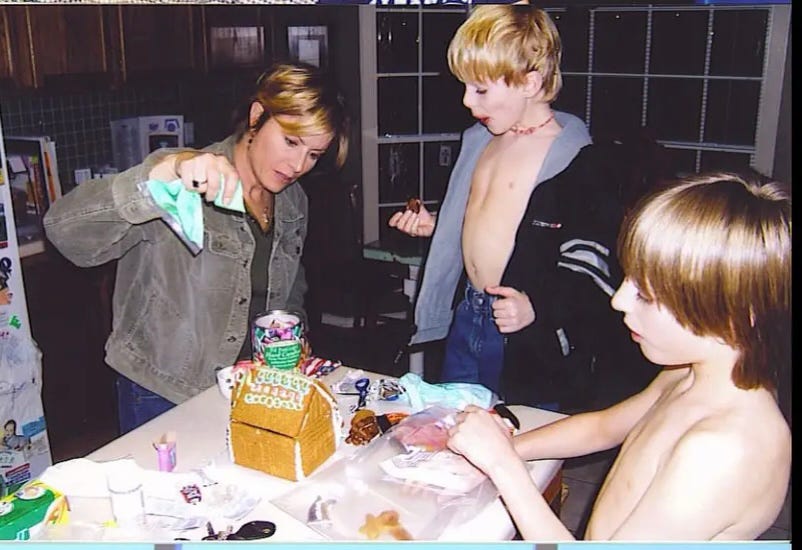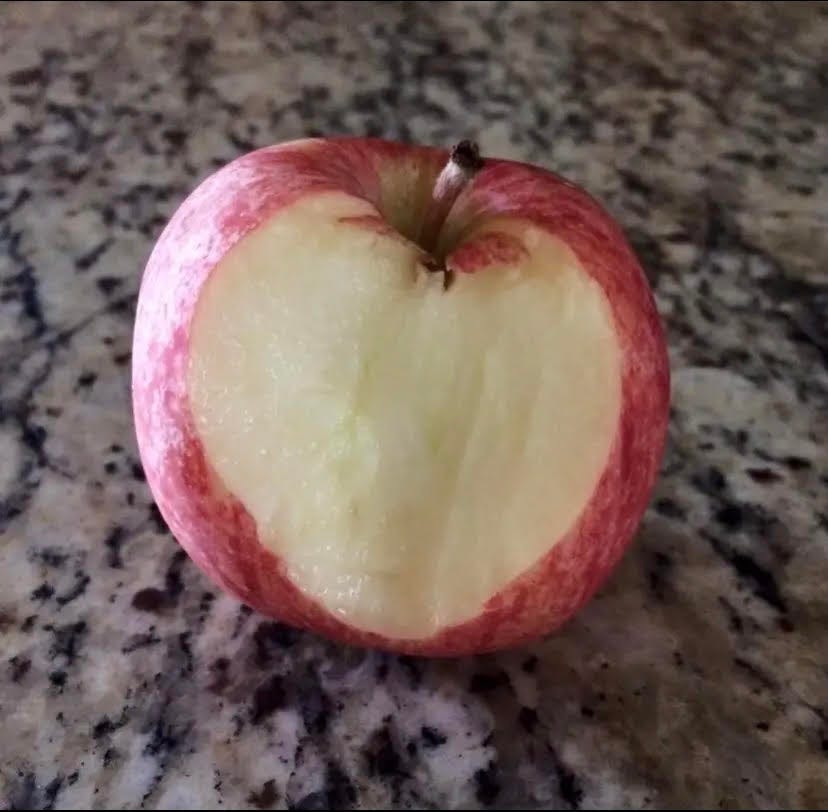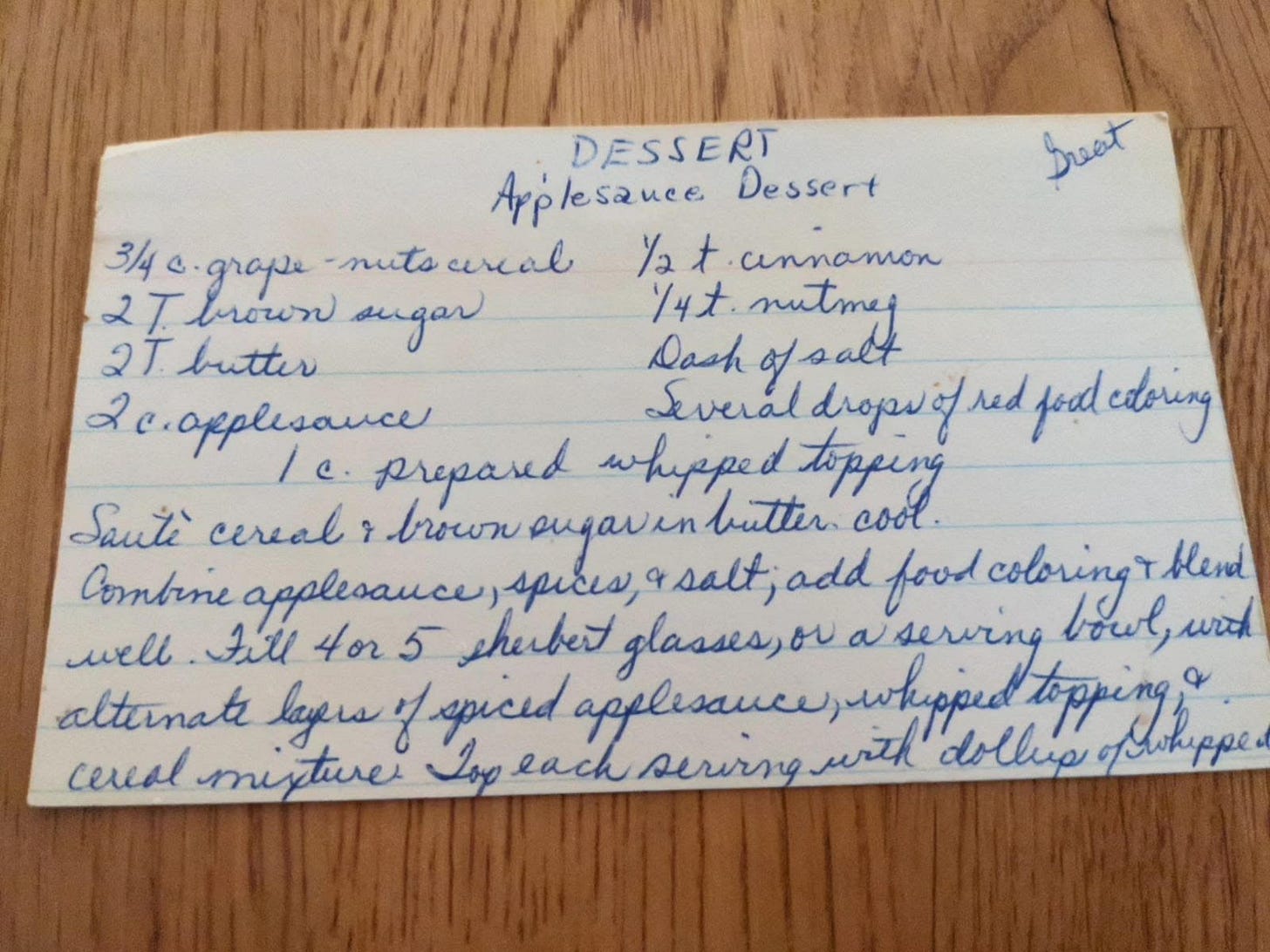Portrait of a Palate is a series of interviews exploring an individual’s relationship to food, how it’s shaped them, and how that relationship has evolved over the course of their lives.
Debbie Chilton is an Austin-based poet, mom, and Sales Manager for Insperity. She is the author of Poetically Seasoned, a book of over 300 poems, which fit into the four seasons and is praised as a book that “reads like candy.” She is fascinated by our nature, the human spirit, and how it translates into each of our lives. You can learn more about her work and purchase her book at poeticallyseasoned.com.
LINDSEY OTTO: How would you describe your relationship to food?
DEBBIE CHILTON: It was interesting for that to be your focus because it has me dive back in all the way back to my childhood. I grew up without much money, so food was sometimes scarce. It was interesting to travel back through that after all these years and the dinner table and what happened around food. I mean, I still loved the opportunity to get in the kitchen when I could and help make things, but there were days where our meals were beans and cornbread or fried bologna. Sometimes, if it was a good week, it was fried bologna sandwiches. Now, I just appreciate the love and the passion that can go into food and the creativity behind it. And just how delicious and comforting and collective and communal a meal can be.
OTTO: You mention growing up with some scarcity. How did that impact you?
CHILTON: My mom was a stay-at-home mom and it was a one-income household. Everything was kind of penny-pinched: food, clothing, activities. There wasn’t really any eating out. Of course, back then we did that a lot less. But my mom was a stay-at-home mom and my dad was out in the workforce.
As it relates to now, I just knew there had to be another way, for life. You can imagine for a little one, thinking, “I just want my milk for my cereal.” Well, here’s your milk, it’s in a box and you add water. Right? I thought, “Wait a minute, what happened to the milk in the fridge?” It was some hard lessons up front. You ate what you ate at the table and you didn’t ask for anything else because that’s what you had.
It shifted me as a mom, I think, to give my kids the opportunity to make a choice. I was a stay at home mom for 16 years. If you don’t want what’s on the table, let’s teach you how to make a peanut butter and jelly sandwich or grab a piece of fruit out of the fridge. I wanted them to be able to have options where I did not.
OTTO: What has been the impact of teaching your own kids that?
CHILTON: They are men now, but I have two boys. I just knew that no one deserved to be treated, I think, that way with just one option and that’s it and there are no questions. I wanted my kids to own themselves and have the power to make decisions for themselves. That was one of the goals that I gave myself, as a mom: When they left the house, they would know what ingredients went in three different meals and how to make them. So that their future spouse or roommate would go, “Ok, well we’ll keep this guy around because he can help out and create for himself.” That’s what I wanted them to have.
Now, I was talking to my oldest yesterday about the difference between regular ground beef and Wagyu ground beef. It’s the best ever, I told him, let’s go for the Wagyu! Do it!
OTTO: Tell me about your mother’s garden and fruit trees. Is that where your interest in community-cultivated food came from?
CHILTON: I think because she was very resourceful, she realized, well ding dang, we’ve got some options. I’m not just going to go with what’s at the grocery store, on occasion. I remember riding on the back of my mom’s bicycle, before there were bicycle seats. I was on the fender on a pillow. Way back then a dog ran out and scared me and my ankle went in the spokes, so that didn’t turn out real well. But we had to ride the bicycle to the grocery store to pick up groceries while my dad took the car to work. I think my mom was done with having to deal with that, and she said, “Well, we have a big ol’ backyard and places for trees and I can go buy one. It might take a few years but we’ll have a plum tree and a cherry tree and a peach tree and a pecan tree.” And then a garden, where we would spend pennies on seeds.
That’s when I realized, too, that eating seasonal food is really good for human beings. Living and eating seasonally is really important.
OTTO: Where was this backyard? Where was home?
CHILTON: Portales, New Mexico. It’s a tiny little town on the eastern side of New Mexico. We had four seasons, but arid. I think there was an annual rainfall of less than 10 inches a year, so water was important. You learn to treat the soil well and shifting your crops within the garden. We had strawberries, onions, carrots, tomatoes, all the basics.
OTTO: Do you still garden today?
CHILTON: I don’t, but I love house plants. I think I gave that gift to my oldest, I have one of his pepper plants, and it was finally blooming again. He’s a big gardener. It was kind of fun to teach them about the outdoors and the cycles.
One fruit tree or one tomato plant is too much for one person or one family to eat. My project to give back, if ever possible, is to be able to create a space to share the abundance, where all the extra produce can be shared for those who want to eat that way. Because it’s always better when it’s grown by somebody with love.
OTTO: You’ve also told me about a cinnamon apple cold dessert that your mom used to make. Why does this dish hold a special place in your memory?
CHILTON: It wasn’t made very often, because of the cost. Primarily the Grape Nuts, which were an expensive cereal. I don’t even think we had Cheerios back then. What my mom would do is take apple sauce and put Red Hot cinnamon candies and heat it up in a saucepan, so the cinnamon would be in the apple sauce. Then, she would cool it down and layer the cinnamon apple sauce with grape nuts and then a whipped cream that she would make. It was a cold dessert and she would take out glasses from the cupboard, so when she would make it, the glasses would be in the fridge. We knew that dessert was in the fridge when the glasses weren’t in the cupboard.
It was a very special occasion when she made it, and one day, I asked, “How do you make that? And how come it tastes to cinnamon-ey?” Cause I thought all of the sudden there are Red Hots in the pantry. It was just really unique and I don’t know of any other person who has made that. How it all came together was what intrigued me.
I never talked to my mom about how she created that recipe, but I will take this opportunity to do that.
People Pot
Meek and mild
Tempered and hot.
Mixing together in
A cast iron pot.
Steam rising as change takes place. Adjoining together for one great taste.—From Poetically Seasoned by Debbie Chilton
OTTO: I want to turn to your poetry now. What was the inspiration for the poem “People Pot”?
CHILTON: As you can tell my poetry is about nature and human expression. When people get together, they each have different attitudes or flavoring. You can put three people together but if they are different, they all meld together in some way and become a community or a group. Which is different than if you add one person into the mix.
For example, if you use Red Hots instead of cinnamon, you’re going to have a different flavor. And there are some people, when they get together, steam rises up. There’s a little friction, right? A little physical change can take place. A little emotion can jump up. Or people get together and it’s so rich and wonderful, you can’t wait to do it again.
OTTO: I never thought of it that way. In the same sense as when you cook, a chemical reaction is taking place when people interact with one another.
CHILTON: Yeah, there’s a reaction, right? You can even walk into a room and sense that someone is looking at you. And you look over and they're looking at you. You had a sense of the knowing before you saw it happen. We carry so much power and energy that it’s impactful.
The Diner
Convoluted confusion,
Cultivating the unknown,
Stirred together with the wand of illusion.
Seared with things from the past.
The taste, burns the tongue so tender to the touch,
Yet seems paired so sweetly with the night’s daily special.
Curious which patrons will partake.—From Poetically Seasoned by Debbie Chilton
OTTO: I’m also intrigued by your poem “The Diner.” What were you thinking about when you wrote it?
CHILTON: It’s about being in a tough spot in your life and you can dwell on that and be in it, and hold that illusion that you’ll bring forth again into your present. Or, you have an opportunity — because it’s going to sear your tongue — it’s already made a bad impression on you, that experience, so you have a choice. Are you going to take the same dish over? Are you going to choose that same way of reacting and being or are you going to choose differently, which will completely shift everything?
OTTO: Were you actually in a diner when you wrote this?
CHILTON: No, but I can imagine the diners that come in and the regulars that have their chair and order their same meal. The same coffee, the same meal. The waitress knows you. But then all the sudden, Mabel who serves you the coffee is sick and maybe the coffee is made by someone else and it tastes different and it’s like, “What happened?” That’s the simplistic view of having a difficult time in your life.
I looked at it as: I could sit here and be in this place, or I can choose differently and have a different view.
Flavored Mix
Sweet and spicy
Flavored in the mix.
Varietal intellect seasoned with feelings of another
Outside myself.
For gratitude and grace are sent with love
Do I let myself dip into what is next? Far away, reaching in, when I’m in between?
What is me.
Why contemplate the future?
For all I have is now.
Being loved by me.—From Poetically Seasoned by Debbie Chilton
OTTO: Tell me what you were feeling when you wrote “Flavored Mix.” What does the flavored mix in the poem represent?
CHILTON: The mix is myself and another person. The conversation that happens is seasoned by the past with another. As humans, with everything we’ve been through, sometimes it’s hard to stay in the present and experience it in that moment. The varietal intellect is whatever I have in my head about what they're saying isn’t what they’re saying. If I'm outside of myself and I meet that with gratitude and grace, then I bet there is something new for me to discover. Not only in myself but about that other person.
So what is me in that moment? Why contemplate the future? For all I have is that present moment, and then relating all of that back to me. Because if I am not settled in myself and I’m hearing something, I could get reactive in my conversation back to that person so easily based on my past experience.
OTTO: So the two people are creating a new flavor together.
CHILTON: And in yourself, right? You’re creating a new flavor not only in that relationship, but in yourself. You have a choice at that moment to decide: Am I going to react the exact same way that I have or am I going to choose differently for that other person and for myself?
OTTO: I’m starting to see a theme in your work.
CHILTON: Oh yeah, and it can be a gateway for whatever story the other person that's ready has. They have their own interpretation. Again, that’s the same from the poem, they will have their own understanding of what that is for themselves. Maybe if they read it a month from now, they’ll have a different take on it.
OTTO: Speaking of, food is a lifelong relationship. What would you say to your younger self — knowing all that you know now — about that relationship? What would be your take now?
CHILTON: Food is a way to express your creativity, your desires, your passion. Eat what you love and not just what’s put in front of you. Find the light in that, and honor your humanness. Because you deserve that, as a wee one. We all are an image of God, so own it, live it.
OTTO: Now that we’ve spent time talking about the past and the present, can you tell me about the future and what you hope for it as it relates to food?
CHILTON: I would hope that each of us find a way to be empowered to nourish ourselves the way we need to be nourished. Food is one of the basics of life, without it all things are out of whack. If each of us knew that we could have a tomato plant in six weeks and bearing in eight weeks, what would that do for you? What would you do if you knew you could have chives in three weeks? And carrots in two weeks? You could have food so quickly. What would that do for you? And then you would have so many carrots, you couldn’t eat them all, you're done eating carrots, and you can offer them to someone else. How cool would it be if we all were in that spirit — of knowing our power and letting it influence those around us for the better?
Note: This interview has been edited for length and clarity.
Applesauce Dessert
Courtesy of Debbie Chilton
Makes 4 or 5 servings.
Ingredients:
3/4 cup of Grape Nuts cereal
2 TBSP brown sugar
2 TBSP butter
1 cup prepared whipped topping
2 cups applesauce
1/2 tsp cinnamon
1/4 tsp nutmeg
Dash of salt
Several drops of red food coloring
Directions:
Sauté cereal and brown sugar in butter. Cool.
Combine applesauce, spices, and salt. Add food coloring and blend well.
Fill 4 or 5 sherbet glasses or a serving bowl with alternate layers of spiced applesauce, whipped topping, and cereal mixture. Top each serving with a dollop of whipped topping and a sprinkle of cereal mixture.
Serve chilled.
How has food shaped who you are? If you’ve got a unique connection to what’s on your plate, I want to hear it. Share your story here to be featured in an upcoming edition of Portrait of a Palate.
Thank you for being here. If you enjoyed this interview, please consider giving it a ♥️ or share with someone you love. Your support helps sustain my work.











I loved this interview! And feel so inspired by Alia's approach to community living! Thank you for sharing :)